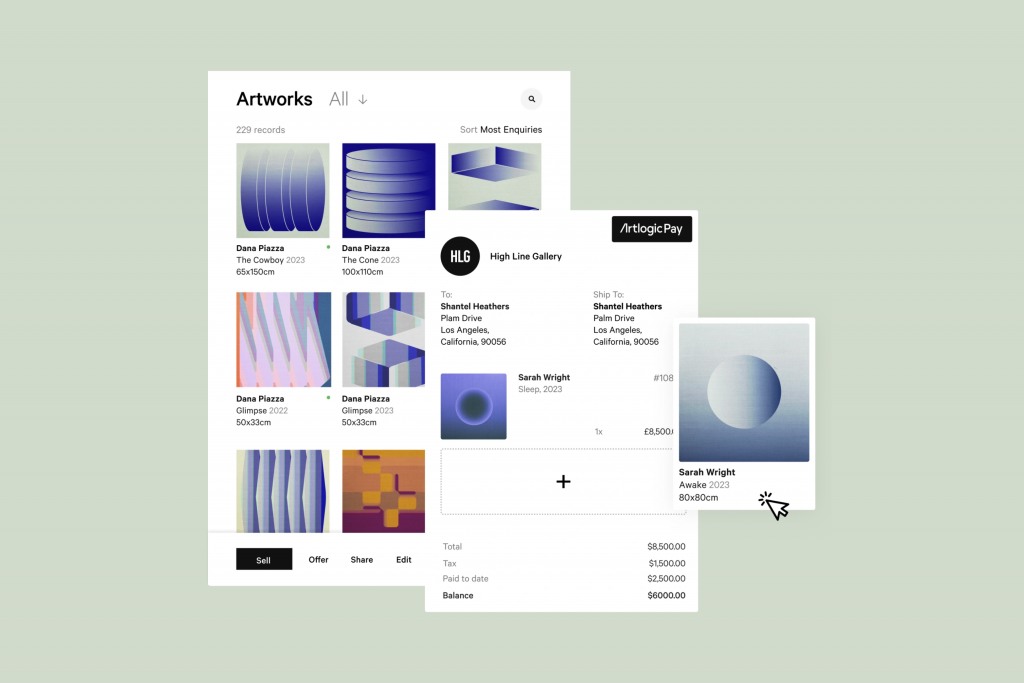Artlogic, the integrated business platform geared specifically to the art industry, recently released a new webinar that took a granular look at the Art Basel and UBS Global Art Market Report 2024 to examine pertinent insights for galleries and dealers. Partnering with author and economist Dr. Clare McAndrew, with additional input from market experts Josh Baer and Maureen Bray, “Navigating Art Market Trends in 2024 for Dealers” pinpointed patterns and translated raw data that together illustrate a pathway for success.
What became apparent from the conversation was both the necessity of an omnichannel approach—one in which all channels are integrated to serve the consumer—and the observation that much of the art market already functions that way. The diverse facets of the art market, from art fairs and exhibitions to social media and digital marketing, coalesce to make an omnichannel experience for all parties involved. What McAndrew, Baer, and Bray noted is the power that taking a focused and purposeful rather than passive approach to omnichannel market engagement offers the potential for greater success and growth.

Courtesy of Artlogic.
Despite the pivot to online platforms as a result of the pandemic, in-person experiences are still a crucial element for business, with fairs and gallery walk-ins remaining some of the top choices for new buyers. Further, artworks at higher price points still see most sales offline, with “over 95 percent of transactions in online-only auctions were for prices of less than $50,000,” according to the UBS Art Basel Report. Paralleling this is the increase of online sales, which, according to the report “are up by seven percent, accounting for a total of $11.8 billion (18 percent of the market)—bringing the digital component of the art market in line with other industries, underlining how this segment of the art business is maturing.”
Together, the importance of a robust omnichannel approach is evident, allowing galleries and dealers to meet collectors where they are and curate a seamless buyer journey. Leveraging both digital and in-person methods cohesively, however, can be tricky. Here, integrated platforms like Artlogic can be seen as invaluable, where users can oversee and strategize essentially all facets of art sales and marketing—and create numerous interfaces through which collectors can engage with and purchase artworks.
With tools such as Artlogic Private View links, through which tailored selections of artworks can be shared with clients, email and digital marketing campaign builders, and the Artlogic app, together cover the bases of an omnichannel approach. And features such as Artlogic Pay, which allows sales to be streamlined efficiently and heightens client trust.
Parsing through the market data, what’s clear is the future of art sales is omnichannel, and overcoming barriers in both infrastructure and online through platforms like Artlogic is an opportunity for greater success.
Watch “Navigating Art Market Trends in 2024 for Dealers” webinar by Artlogic here.







